What Are Play-To-Earn Games? How Do They Work?


Over the past few years, the gaming industry has experienced growth like never before. Increased revenues and large profits have attracted new developers. The increased competition has resulted in substantial industry growth.
One particular emerging economic model that is gaining in popularity is Play-to-Earn (Play2Earn/P2E). In the world of crypto gaming & the emerging NFT gaming markets, this game design model simultaneously suits both the player and the developer.
In this blog post, we’ll uncover and explore the fun elements of different types of play-to-earn games in the crypto gaming space and how it has expanded across collectible & digital trading card games, auto chess / auto battlers and esports.
Table of contents
Exploring the Fun Factor of Play-To-Earn Games
Play-to-earn games refer to the concept of gaming in which a platform provides its players with a chance to earn any form of in-game assets that can be transferred to the real world as a valuable resource.
In a nutshell, play-to-earn occurs when a game offers an in-game currency that has value within the game (for example, to buy and upgrade items or gear) and that same currency has value outside of the game as a cryptocurrency or token. These crypto games usually revolve around NFT assets within the game that can also be bought and sold in dedicated marketplaces.
By playing an NFT-based game and consistently making upgrades to the features of an NFT, the overall value is expected to rise as a result. This of course also depends on the particular game’s popularity and adoption.
A further benefit of cryptocurrency being used within a game is where investors (or holders of the cryptocurrency or token) receive voting rights in the governance of the game’s ecosystem. It can also be used to gain a stake in the game community treasury.
Recently, there have been many play-to-earn games, such as Axie Infinity and The Sandbox, that have been gaining popularity. Their complex economic system unites them with classic games. We’ll break down some of these games into the various gaming genres that they fall into.
Crypto Gaming Genres
Crypto gaming genres can be broken down into the following categories:
- Collectible Card Gaming (CCGs)
- Battle Royale
- Auto Battlers
- Auto Chess
- Create + Explore
- City builders
- Gambling Games
- Evolvers
Collectible Card Gaming (CCGs) & Culture
Over the last decade, the rise in popularity of many different trading and collectible card games , both physical and digital, has seen the genre explode within the global gaming community. Collectible Card Games (CCGs), also known as Trading Card Games (TCGs), are a type of card game that mixes strategic deck building elements with the features of trading cards.and was traditionally played in a physical, tabletop format but more recently has gained widespread use in a digital, online and often mobile format.
CCGs are typically themed around fantasy or sci-fi genres. A player usually begins playing a CCG with a basic, pre-made starter deck. They are then able to earn, collect or buy more valuable and rare cards via booster packs and trading to augment their card library and build decks with stronger cards to battle with.
The basic gameplay involves two or more players taking turns in drawing and playing cards and attacking opponents. Players often use some form of a mana pool that is used to summon cards onto the battlefield. Often, there are card groups that stack with one another accordingly, giving them greater power and synergy. The final winner is determined as being the player left standing after an opponent’s health points have been reduced to zero.
Popular Early CCGs – Physical, Digital & Virtual
The grand daddy of CCGs that may have inspired a large part of the entire CCG industry is Magic: The Gathering (also known as “Magic” or MTG). The game spawned from Dungeons & Dragons and was first developed and created in 1993.
Another early favorite that is still around is the Pokémon Trading Card Game (often referred to as PTCG or Pokémon TCG). This game eventually spawned Pokémon Go, a 2016 augmented reality mobile game where players could use their mobile devices with GPS to locate, capture, train and battle virtual creatures. Another successful CCG is Yu-Gi-Oh!.
While many of these earlier CCGs were played in real life (IRL) with physical actual cards, the advent of the digital and internet age has seen an explosion in virtual/digital CCGs, or DCCGs – many of which can be played on handheld mobile devices or gaming consoles. One of the most popular of these digital CCGs would be Hearthstone by Blizzard Entertainment, and is based around characters and creatures developed within its World of Warcraft brand. Another popular example in this category would be Gwent: The Witcher Card Game, based around Andrzej Sapkowski’s The Witcher novels. A further example of a successful DCCG would be the Digimon Collectible Card Game.
The rise in popularity of DCCGs has seen a boom in esports for many of these types of games.
NFT-Based CCGs & Play-to-Earn
With the growth of blockchain, cryptocurrency and NFTs, the CCG universe has expanded further to include NFT-based CCGs. Blockchain technology is powering the future of gaming and allows players to trade, sell and lease their NFT card assets.
Many of these CCGs offer cards that are compatible with third-party marketplace platforms such as OpenSea, PeakMonsters and Monster Market among others, where they can be exchanged at market value. This adds the play-to-earn element along with the fun gameplay.
Gamers are loving GameFi (the intersection of gaming and NFTs, and even DeFi) for three main reasons:
- True ownership: While in conventional digital games, players can buy in-game assets, those assets don’t actually belong to them. On the other hand, NFT-based games give players complete control over their assets– in-game assets like cards, lands, avatars, or swords are NFTs.
- Verifiable rarity and uniqueness: Non-fungibility makes it possible for creators to make 100% unique tokens, as well as programming different rarity levels for the assets. Naturally, some items in games will be scarcer or more useful than others, and their value should reflect that. Since everything happens on the blockchain, it’s easy to verify the scarcity, uniqueness, and authenticity of each asset.
- Opportunity to earn income while playing: As explained earlier, these new CCG games implement play-to-earn mechanisms. By participating in games, players can earn cryptocurrencies and in-game items that have real-world value. Many games have their own secondary markets for trading.
Gods Unchained is a free-to-play tactical card game that gives players true ownership of their in-game items. The game focuses on competitive play, where players must strategically outsmart their opponents by building decks that are able to combat a wide variety of tactics. Players completely own their digital items, giving them the freedom to trade, sell and use their cards any way they like – just like owning real, tangible cards.
Ccg Game Example: Axie Infinity
Image source: Axie Infinity Whitepaper
The popular Axie Infinity NFT game allows players to collect, battle, raise, breed, trade, and build a digital kingdom for their pets, called Axies. In early April, 2022, Axie Infinity revealed the first gameplay and live action of their Axie Infinity Origin Alpha. Their previous versions released were an auto battler (explained further on in this article) and a classic version.
Battle Royale
Battle Royale card games are survival card games that combine Battle Royale mechanics with the social dynamics of board games. The winner of the game is the one who survives to the end. In this last-man-standing scenario, once all of the opposing players have been eliminated, the winner is determined.
This subgenre requires a lot of in-game knowledge, but also demands a lot of on-the-fly anticipation, since you never know what characters or cards you’ll be able to buy, or what synergies you should focus on. It can be a nerve-wrecking and frustrating ordeal, but all players have the same random chance of being “lucky”.
Thetan Arena is a fun, well-rounded, complete and popular battle royale CCG with fully-finished gameplay at market standards level of quality. Battle Royale is one game mode, with another being MOBA (multiplayer online battle arena). Battle Royales involve massive battles between up to 42 players or 21 duo teams.Players earn Thetan Coin (THC) or Thetan Gem (THG) by participating in battles or completing other tasks.
Auto Battlers & Auto Chess
The rise of auto battlers and auto chess as a new type of strategy gaming mode has surfaced and come to prominence over the last few years. Whether you’re a hardcore gamer or a casual mobile player, you’ve probably heard of these terms floating around online and making waves across the internet.
Auto Chess
Auto chess (a newly-evolved form of auto battlers) are competitive turn-based role-playing games (RPGs), with a large emphasis on strategy, as well as a lot of random variables and elements involved. The game acts like a Trading Card Game (TCG), except that the goal is not trying to beat just one opponent, but surviving against seven of them.
Most auto chess games have player vs environment (PvE) and player vs player (PvP) turns. PvPs are always 1-on-1 battles. The distinct feature that defines this genre is that the battles are automatic (hence the “auto” prefix in the name). Another feature is that players can only choose or “buy” and place their characters (taken from the source content) at the start of the game, just like they would for pieces on a chessboard. The difference here is that on a chessboard, both players essentially have the same pieces and the game starts with all pieces laid out on the board. In an auto chess game, all 8 players are pitted against each other simultaneously and each player usually only starts with one character and builds their layout from that starting point.
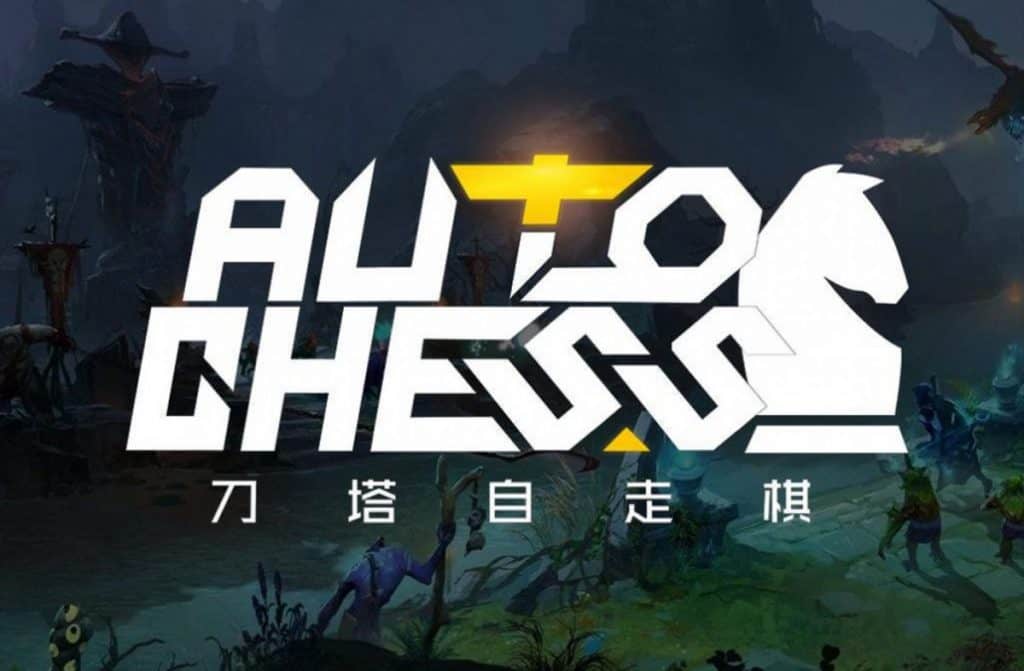
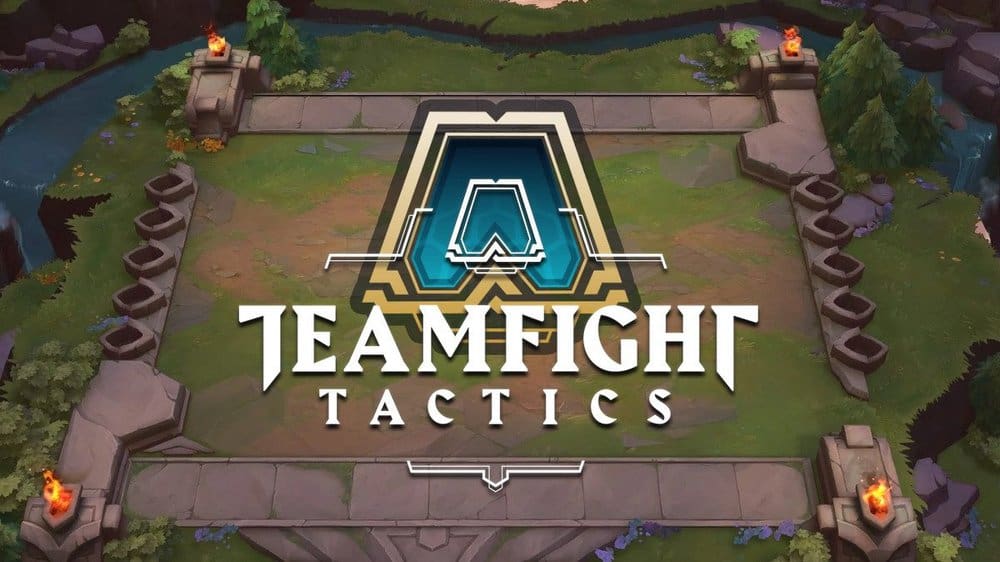
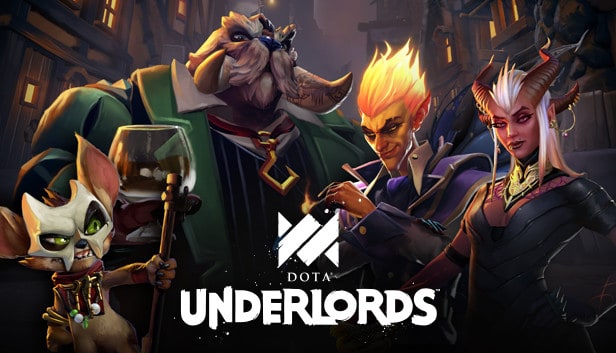
Auto chess has several similarities to Battle Royales, and just like in that subgenre, auto chess has exploded with many different gaming options. Many developers have also started to release their own auto battlers. Currently, the most popular auto chess titles, in no particular order, are: Dota Underlords from Valve, League of Legends’ Teamfight Tactics (TFT), and Auto Chess, from the original creators of Dota 2’s Auto Chess mod.
Other auto battlers include Pegaxy (Pegasus Galaxy), which is a racing game with futuristic mythological styling. In the game lore, Pega (the winged horses) are descendants of the mighty Pegasus. For gameplay, players participate in PvP format races to win rewards in the platform’s native utility token, VIS (Vigorus).
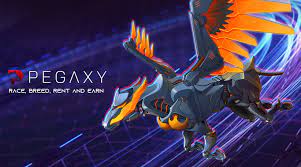
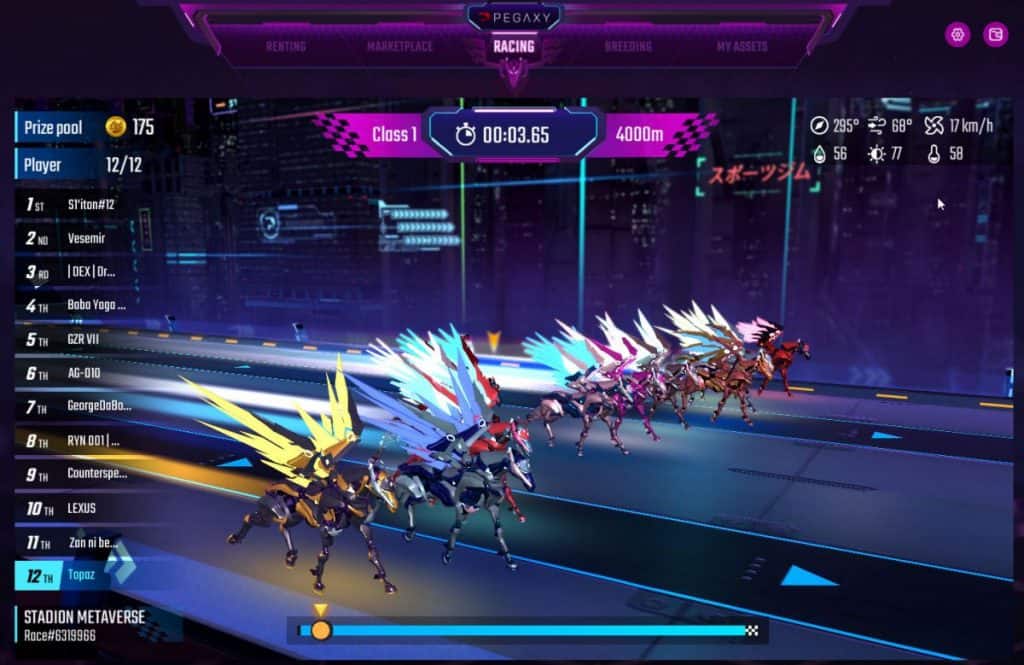
Create & Explore
The “Create & Explore” play-to-earn economic model allows its players to create new digital assets and trade them via the game’s infrastructure. The chance to earn as you create, engage and play can make these activities and experiences both fun and profitable.
Decentraland is a 3D virtual world browser-based platform where users can buy parcels of virtual LAND, create structures, scenes and art, explore other LANDs and trade digital assets. This is all achieved via the platform’s native Ethereum token, MANA.

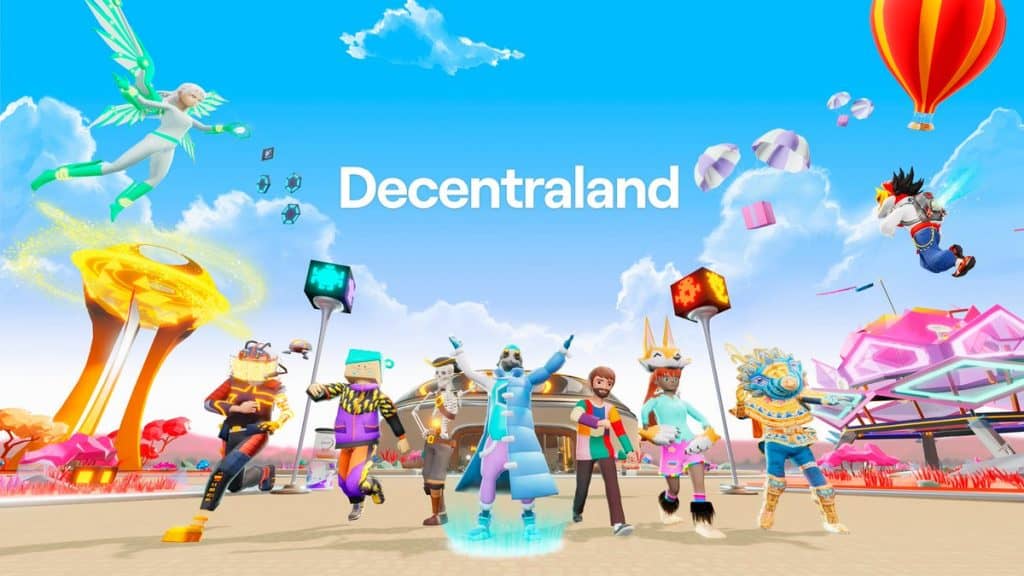
Create & Explore Game Example: the Sandbox
Create & explore play-to-earn games also create communities where players and creators can meet and share wisdom, and close deals. The Sandbox, which is similar to Minecraft, is a virtual world where players can build, own, and monetize their gaming experiences on the Ethereum blockchain.
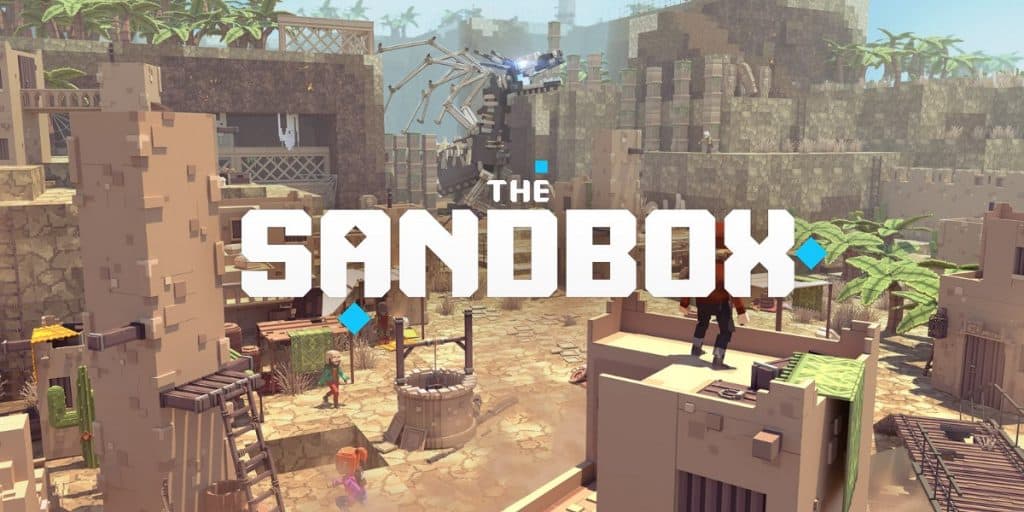
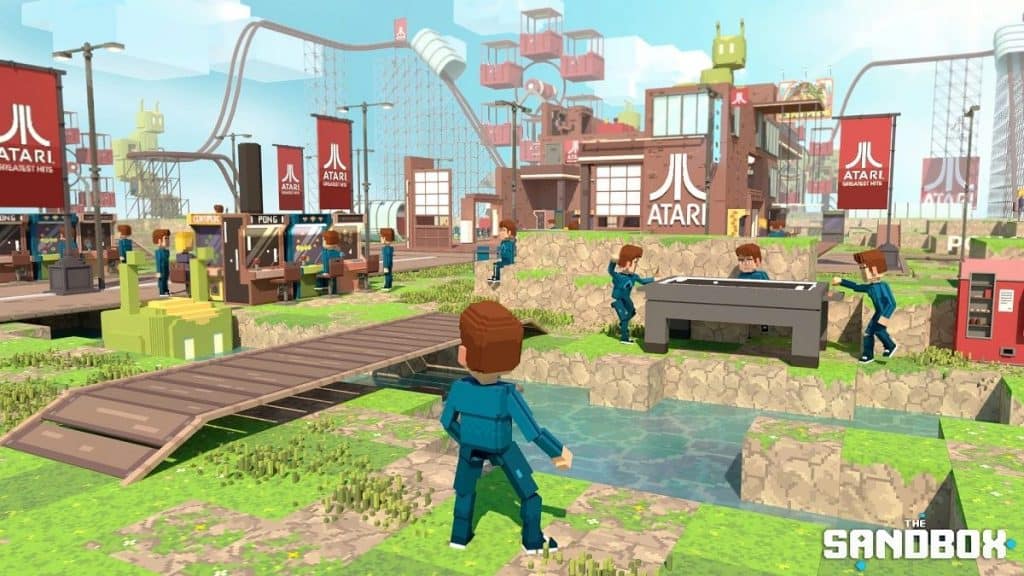
Within the Sandbox blockchain gaming platform, there are three integrated products that together provide a comprehensive experience for user-generated content (UGC) production. The combined products further benefit users by allowing them to secure copyright ownership for their user-created content through blockchain and smart contracts.
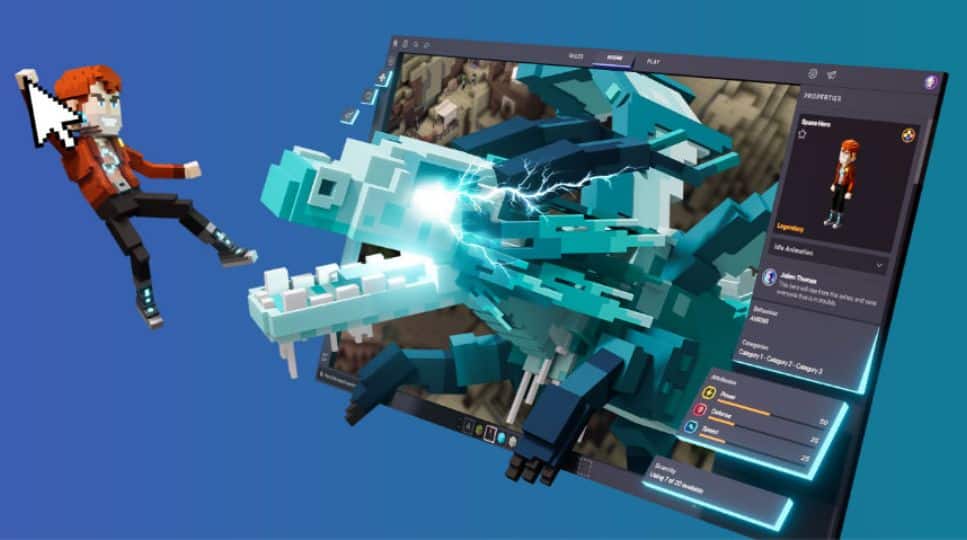
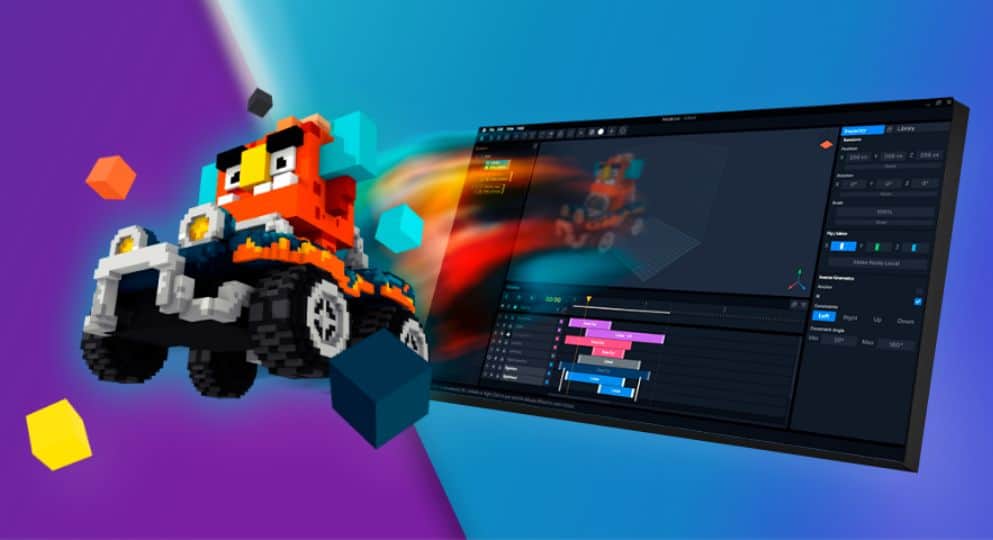
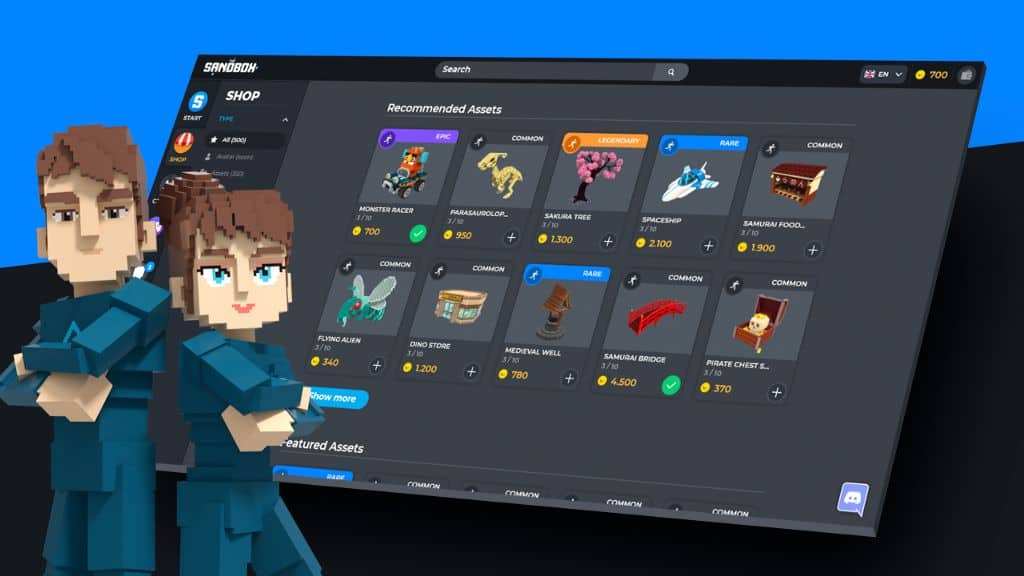
Players can create their own items and exchange them as NFTs on Sandbox’s NFT marketplace. VoxEdit allows users to create their own voxel models, rig them and animate them quickly. The Sandbox Game Maker allows users to build, share and monetize their amazing games.
VoxEdit is a simple to use yet powerful free 3D voxel modeling and NFT
creation package for PC/Mac that allows users to create and animate 3D objects
such as humans, animals, vehicles, foliage, tools and items.
City Builders
Another crypto game genre is the city builder, where you can buy land, establish buildings and design and expand your space. This game genre has been around for decades with established titles like SimCity first being played on desktop PCs. The switch to NFT-based city builder games has been slow and gradual but also inevitable.
Upland is a virtual metaverse mapped to the real world and accessible via web, iOS and Android.
In addition, there is a “real economy” that is sustained by players via the market forces of supply and demand for virtual property. Upland is built on the basis of three key pillars: play, earn and connect.

Gambling Games
No list of gaming genres would be complete without mentioning the genre of gambling. Virtual crypto gambling games have been growing since cryptocurrency and NFTs were first developed.
One such example of this genre would be Decentral Games. Its free metaverse poker game, ICE Poker, allows players to earn tokens by completing daily challenges and competing against each other on a daily leaderboard. ICE is an in-game currency that incentivizes player liquidity and enables upgrades of in-game items. DG is a utility token spent to activate and upgrade ICE Wearables.
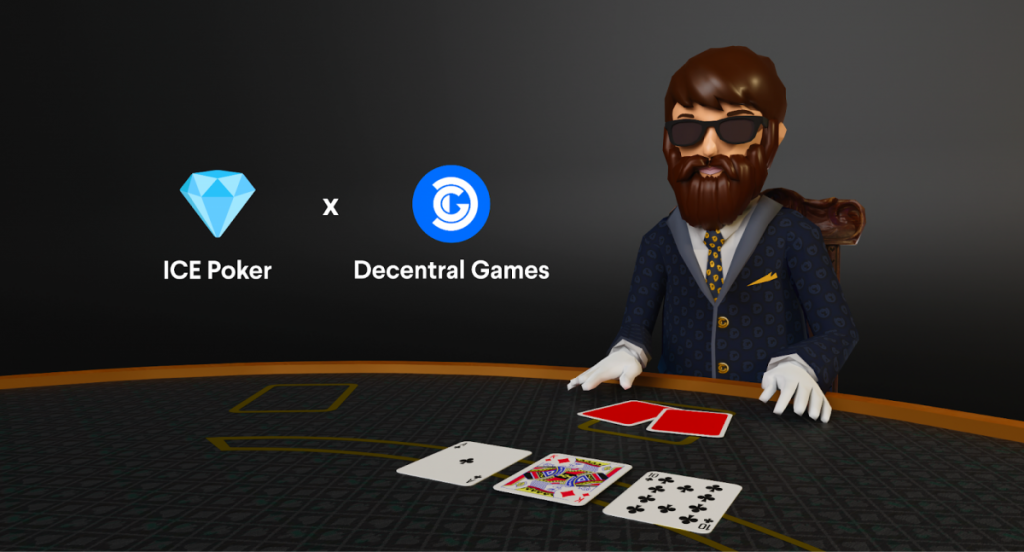
Evolvers
The evolver genre of play-to-earn NFT games allows users to develop and evolve their game NFTs into better versions or expand their collection into more NFTs.
CryptoKitties is a fun game in the evolver genre that is based on the Ethereum blockchain. It was developed by Canadian studio Dapper Labs. In essence, the gameis like Neopets on the blockchain.Gameplayers collect various breedable, collective NFT CryptoKitty creatures, which can then be bred to acquire more
CryptoKitties. Side task activities include puzzle-solving for further game progression. This game was one fo the first in the crypto-verse and an early forerunner of the evolver genre. Shortly after the game’s launch in late 2017, it achieved massive appeal and introduced the concept of unique digital asset trading and blockchain systems to the general public.
Watch Out for Ponzi Games
One thing to be wary of is pseudo 🚨 “play-to-earn” where the aspect of playing and engaging with the game is somewhat limited to buying and/or staking in-game NFTs. In these type of games, the earning aspect comes from collecting in-game items (e.g. crops) for profit. These ponzi-type games should really be avoided at all costs.
Given all of these different avenues that play-to-earn has taken in the crypto gaming and NFT space, it’s clear that the future holds many FUN possibilities for both developers and gamers. The games mentioned here are just the tip of the iceberg, with many new, fun and engaging, up and coming titles looking to take the crypto and NFT gaming space by storm.
Closing Remarks
Play-to-earn games are a recent innovation in the world of cryptocurrency income. You typically have to be first in line for new initiatives and concepts in order to benefit from them. Play-to-earn has, however, made it possible for gamers to make money. However, you should always exercise caution because many games have the potential to be high-risk, unsustainable due to poor tokenomics, or even scams.
Read related articles:
Disclaimer
In line with the Trust Project guidelines, please note that the information provided on this page is not intended to be and should not be interpreted as legal, tax, investment, financial, or any other form of advice. It is important to only invest what you can afford to lose and to seek independent financial advice if you have any doubts. For further information, we suggest referring to the terms and conditions as well as the help and support pages provided by the issuer or advertiser. MetaversePost is committed to accurate, unbiased reporting, but market conditions are subject to change without notice.
About The Author
Jay is a copywriter, interested in advertising, marketing, copywriting, entertainment, e-commerce, blockchain, FinTech & real estate. Been an instrumental player involved with international multi-million property developments as Executive Marketing Manager, as well as a Multimedia Designer.
More articlesJay is a copywriter, interested in advertising, marketing, copywriting, entertainment, e-commerce, blockchain, FinTech & real estate. Been an instrumental player involved with international multi-million property developments as Executive Marketing Manager, as well as a Multimedia Designer.
















































